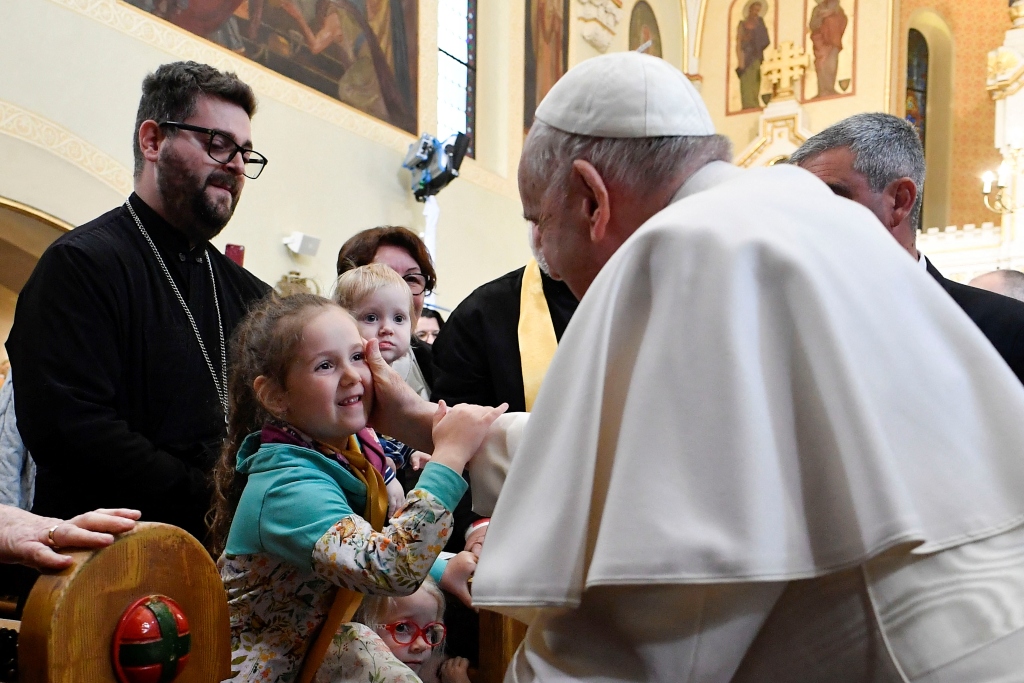I’ll be the first to admit: I did not prioritise my religion while in the US.
In my nearly 24 years as a Muslim, born and raised in Malaysia — an Islamic country in Southeast Asia, nonetheless — I’ve listened to my mother ram into my head the importance of praying five times a day at least three to four times a week since my childhood.
Yet, when left to my own devices during my study abroad, religion fell to the wayside.
I know for a fact that I’m not alone, regardless of what people practise.
According to studies by the Barna Group and USA Today, nearly 75% of Christian youths abandon the religion after high school. In a survey conducted by the Pew Research Centre, a fifth or more adults worldwide no longer practice their childhood religions, with Christianity and Buddhism experiencing hefty losses.
There are many, very layered reasons as to why religion gets left behind.
As a Muslim, I found it difficult to open up about my religion since it’s a minority community in the US, making up only 1.1% of the total population, and especially because Islamophobia has been on the rise across the nation, even before the war in Gaza. I studied in a small city where the mosque was located a little too far for easy access, and it was predominantly Catholic.
Beyond that, I really just lacked accountability.

I grew up as a Muslim in Malaysia, guided by my parents. Losing that meant losing some accountability. Source: AFP
Subuh prayers at 5-something a.m. were never completed, and Eid festivals were never celebrated. I made weightless excuses to cut back on a few days of fasting. When classes ran too long, I’d never replace my praying sessions. I could’ve taken the bus to the mosque, the same way one of my Catholic friends did to the church every Sunday.
But I didn’t.
It’s easy to practise religion like second nature when you have your parents reminding you to take a second and connect with god. I hadn’t even known or considered that my university hosted a Muslim Student Association where I could’ve met peers in the same boat, breaking fasts with them instead of my K-drama and a sorry bowl of ramen.
Even if you move to study abroad with the full intent of keeping religion a priority, it’s only natural and human to let it slip away when you’ve got triple the responsibilities on your own.
But it’s important to remind yourself why religion is important to you in the first place.
“There are many forms of human suffering that are beyond the reach of any scientific alleviation,” a professor of philosophy wrote in the New York Times. “Unlike previous secular tributes to religion that praise its ethical and civilising function, I think we need religion because it is a road-tested form of emotional management.”
And yeah — you’ll probably need some emotional management in university.
To advise us on how to practise your religion when studying at university, locally or especially when abroad, I recently spoke to Rev. William Kwong, a pastor affiliated with Methodist College Kuala Lumpur (MCKL) who guides students on campus closer to their faith.
3 pieces of advice on how to practise your religion when studying abroad
The importance of taking initiative
There’s no denying that moving to college or university for the first time marks a huge transition for anyone. It’s a new phase of life; a new chapter of independence. It’s tough to adjust to a new environment, especially when alone.
But there’s also no skirting around the fact that if you’re eager to learn how to practise your religion when abroad, the first and foremost thing to note is that you have to make time for it.
“Sometimes it’ll just be: ‘I come to class, and because my home is nearby, I will go home and eat. I come out again [for class], and then I go back, either to eat or study,” Rev. Kwong says. “So it’s just one small box, coming out to a larger box, returning back to a smaller box.”
Rev. Kwong highlights that schools, just like MCKL, offer counsellors who can help you adjust through this transitional period, allowing you to find proper balance. After all, studying isn’t the sole defining factor of the university experience. You can take 15 minutes to recite prayers between your classes at the bare minimum, or even seek out a faith-based community.
If you never seek, then you’ll never find.
“Try to find and build your daily rhythm and schedule. Most students, when they go overseas, most of the schedule is dependent on fun — and then, your whole uni life is lopsided,” he says. “I will say that’s where the church comes in. The faith communities will definitely help [you out], because there are people who have done it before.” 
Finding community within your faith takes initiative. Source: AFP
The importance of finding community
Alongside taking initiative comes finding community. The best experiences are often shared with like-minded people, and there are plenty to reach out to, so long as you look.
For example, MCKL hosts weekly faith activities for accommodation students. “They do stubbornly hole themselves up in the room, but we also have to stubbornly encourage them out. Ice cream usually works,” Rev. Kwong says.
He emphasises that you don’t even have to make 10 friends — starting with a few is just fine.
There are many ways you can connect with the local faith community, one of them being to seek out a senior at the university who’s experienced exactly what you’re going through. At MCKL, the Christian Fellowship often hosts discussion groups after classes, where students can talk about the trials and tribulations of life with each other.
Rev. Kwong himself studied in Australia, where he was lucky enough to have a college classmate with whom he’d attend events. Eventually, the right community would find him.
Years and years later, the time Rev. Kwong spent in the Christian Fellowship during his university days serves as a constant reminder to always look out for his students.
“I don’t sit down and wait for people to come,” he says. “We have to go and look out for others.”

In Japan, Shintoism is the most practised religion. Source: AFP
The importance of exploring culture
When you’re learning how to practise your religion in a new country, you might realise it looks just slightly different from what you’re used to.
My mom and I noticed that some Arabic women would pray with their feet uncovered, and that’s because certain (keyword: certain) Madhabs are more lenient than others. You have Buddhism that looks different throughout Asia, depending on the three major schools and local traditions, with the Dalai Lama only connected to Tibetan Buddhism.
Learning about the practices of different faith communities is integral to spiritual growth.
“If we are siloed and cocooned in our thoughts, then that’s where learning ends,” Rev. Kwong says. “So for me, whether it’s a Christian or not, it’s always good to be asking and learning about another person’s faith.”
When Rev. Kwong was studying in Australia, he was mesmerised by the variety of churches — from over a 100 years old, to extremely modern buildings. He’d take the time out of his week to attend both the old and the new, resulting in a deeper connection to his faith.
“Regardless of whichever country you go to and study in, it’s always good to look at the location’s history, and the spiritual history as well,” he says.

